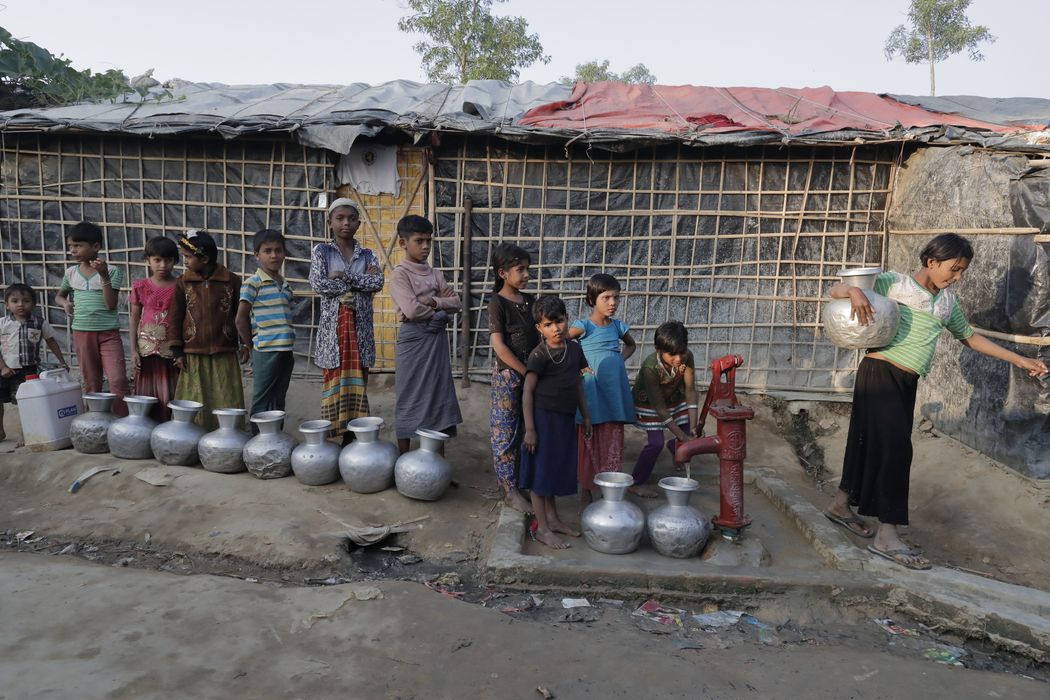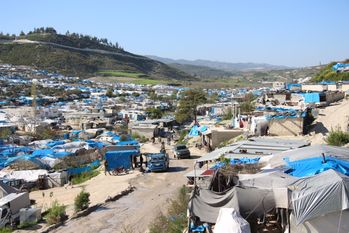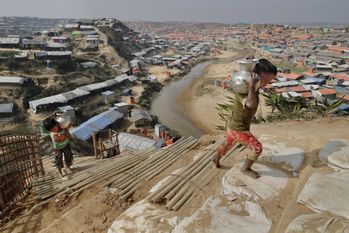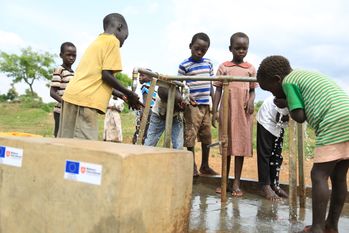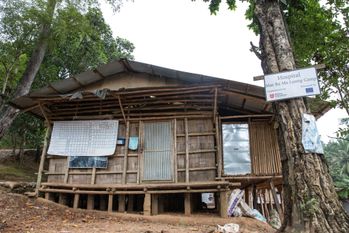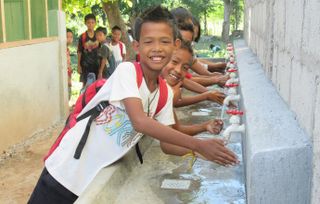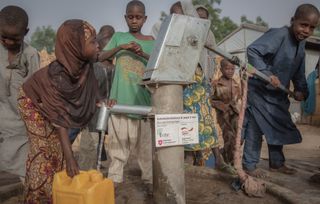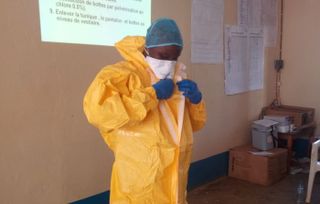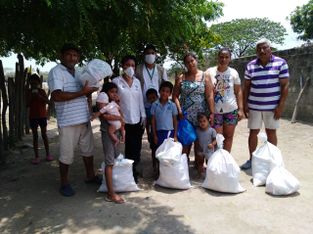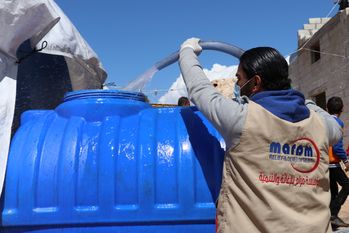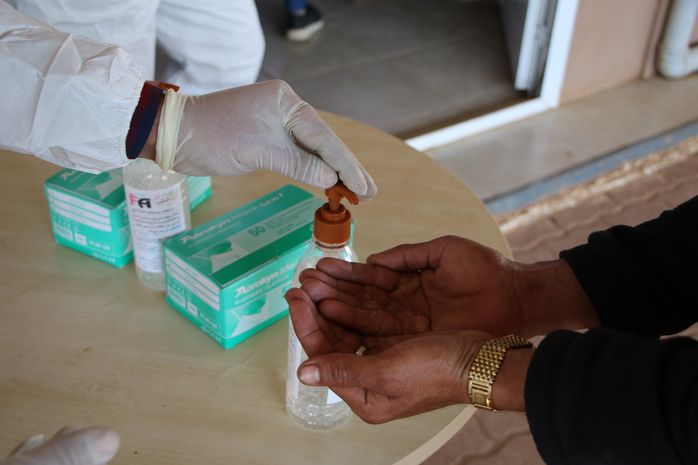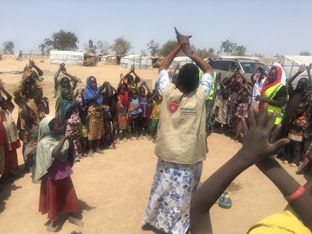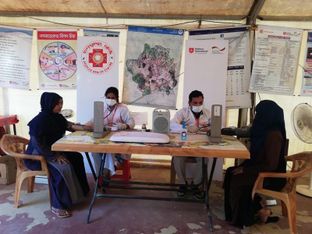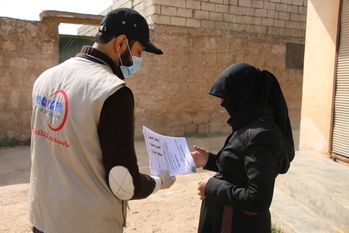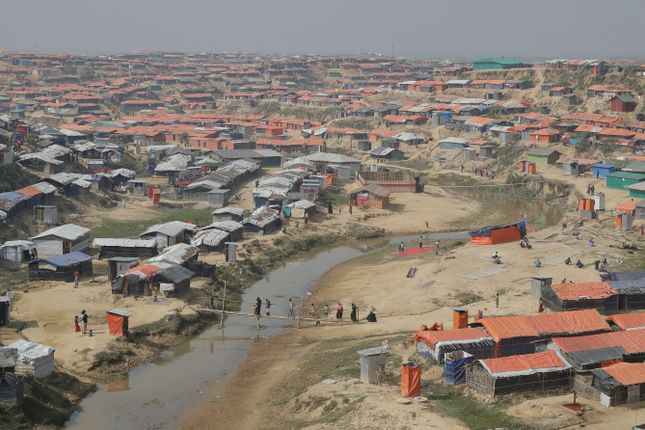
Keeping refugee camps free from the coronavirus pandemic
In refugee camps all over the world, fear of the novel coronavirus (COVID-19) is growing. Millions of refugees and displaced persons currently living in overcrowded camps across the world are facing a heightened risk due to the mostly deplorable conditions. Without adequate access to clean water, sanitation or hygiene items such as soap, a COVID-19 outbreak in the camps would have devastating consequences.
In the refugee camps in Greece, for example, the situation has already worsened considerably: In April 2020, Greece was forced to quarantine a refugee camp after residents there tested positive for the virus. In two camps near Athens, several people have tested positive and the camps have been quarantined. Conditions like the above demonstrate that the people in refugee camps are in dire need of our assistance.

Current situation: To what extent are refugee camps affected by COVID-19?
The first cases in refugee camps where Malteser International is working were registered in May in the camps in Bangladesh. As of December 27, 2020, there have been 366 confirmed cases of COVID-19 in Bangladesh’s Cox Bazar refugee camps, the world’s largest refugee settlement. 10 refugees have died due to COVID-19. In the entire Cox's Bazar district, 5,724 people tested positive for the virus (as of 27/12/2020). It is feared that the virus may spread rapidly. The reason for this is the precarious conditions under which many refugees and displaced persons in countries such as Syria, Bangladesh or Greece live.
In Bangladesh, refugee settlements in Cox's Bazaar host over 860,000 refugees from Myanmar (55% of whom are children), all living in cramped and desolate conditions. According to the United Nations High Commissioner for Refugees (UNHCR), an average of 40,000 people are sharing shelters on each square kilometre.
This is more than forty times the average population density of Bangladesh. Up to twelve people live in the makeshift bamboo-and-tarpaulin shelters barely ten square metres in size. In addition to the acute lack of space, there is hardly safe access to clean water and sanitation. For instance, dozens of people have to share a toilet. There is also a lack of food and medical care. Due to all these deficiencies, people's immune systems are already severely weakened, which makes them particularly vulnerable to the coronavirus.
In addition, many refugees and displaced persons earn money as day labourers in the camps or the surrounding areas, in order not to be exclusively dependent on relief supplies or to be able to eat a more balanced diet. Due to the lockdown measures, many of them will lose their income, and this will worsen an already dire situation.
Malteser International's work in other refugee camps
What is the danger of a coronavirus outbreak in refugee camps?
If the coronavirus breaks out in a refugee camp, containment would be difficult due to the poor living conditions. The factors below mean that a humanitarian disaster could be expected in the event of an outbreak:
- Effective enforcement of protective measures, such as social distancing, regular handwashing or isolation of infected and suspected cases would be nearly impossible given the mostly overcrowded and unhygienic conditions in camps.
- Monitoring access to camps is not possible especially in large camps. It is therefore difficult to know whether people infected are camp residents or people from outside the camp. The virus could thus spread unchecked and undetected.
- Health facilities in many camps are stretched to capacity and are not prepared for a coronavirus outbreak. Among other things, medicines, protective equipment and respiratory equipment are in short supply. It would be particularly difficult to adequately treat people with acute symptoms.
How are the refugees and internally displaced persons dealing with the situation?
The threat of the pandemic leads to very different reactions among the inhabitants of the camps. “When a case of COVID-19 was reported near the camps in Bangladesh, uncertainty and frustration understandably grew there, but this did not directly lead to panic. Due to the lockdown in Bangladesh, many refugees are currently desperate. Many do not know how to provide for their families adequately", said Rajan Ghmire, Program Partner Coordinator for Malteser International in Bangladesh.
In the camps in Thailand, Nigeria and Uganda, Malteser International staff have reported that various information campaigns have created more public awareness about the virus. More and more people are trying to protect themselves from infection as best they can through protective measures.
In north-western Syria, where civilians have had to endure years of suffering from a brutal war, many displaced persons in the camps are finding it difficult to see the coronavirus as a life-threatening disease.

Protective and hygiene measures against coronavirus in camps
Malteser International is committed to preparing refugee camps and their inhabitants for an outbreak of coronavirus in the best possible way. For this purpose, preventive hygiene and protective measures have been put in place and healthcare facilities are provided with necessary equipment. In many of the regions in which we work, the lack of laboratories means that testing options are limited and almost non-existent in camps. This makes preventive measures are all the more important.
Improving hygiene conditions and strengthening health facilities in camps
To counteract the pandemic, it is essential to improve the hygienic conditions in the refugee camps and to strengthen the capacities of the medical facilities. We therefore equip health care facilities with medicines, protective equipment, disinfectants and other equipment, train health care personnel, install hand washing stations and set up isolation wards. We are also distributing hygiene products such as soap and are committed to constantly improving access to clean water and sanitation.
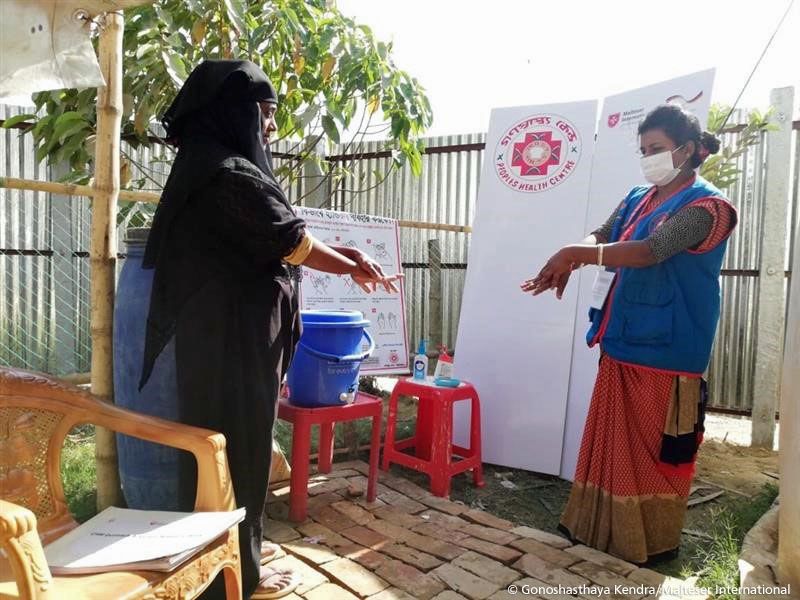
Increasing public awareness on the coronavirus
Furthermore, one of our core tasks is to raise awareness of COVID-19 and to communicate the most important information to residents of the refugee camps. Residents receive awareness training so they can practice safety measures such as proper hand washing, social distancing, etc.
In some cases, Malteser International staff visit individual households to inform people about the COVID-19. In addition, a wide variety of communication channels including posters, leaflets, brochures or social media are used to reach camp residents. In the Democratic Republic of Congo and in South Sudan, we are also working with radio and tv stations to spread information on the virus.
Protecting and training aid and healthcare workers against coronavirus
Of course, it is also important that aid workers and healthcare staff in refugee camps adopt appropriate protective measures.
We are providing healthcare institutions with important equipment such as masks, gloves and disinfectants to reduce the risk of infection.
The employees of our partner organizations and volunteers also receive extensive training on infection prevention and control. The training includes instructions on proper handwashing and correct handling of suspected cases. They are also encouraged to practice social distancing, avoid physical contact and large groups, and to always carry disinfectants and wear masks.
Dealing with new arrivals and visitors
New arrivals, visitors or people who have been outside the camp settlements are inspected for symptoms before entrance. In the camps in Thailand, people who show signs of symptoms undergo a 14-day quarantine in specially equipped areas within the camps. Such quarantine zones are unfortunately not available in all refugee camps and can only hold a limited number of people. Nevertheless, controlling access to the camps is only possible to a limited extent.
Donate now: Refugees in camps are dependent on your support
Refugees in camps are in urgent need of your assistance to overcome the insufficient infrastructure and the dire conditions in the camps they live in. With the first cases reported in Bangladesh’s refugee camps, it might only be a matter of time before the coronavirus spreads widely. With the first cases reported in Bangladesh’s refugee camps, it might only be a matter of time before the coronavirus spreads widely.
With your support, we can effectively prepare them for an impending outbreak. Please support us with your donation so that we can provide aid workers as well as camp residents with the necessary medical equipment, protective gear, soaps and disinfectants they need to stay healthy.
You can help save lives today. Donate to Malteser International’s Coronavirus Response Appeal!
